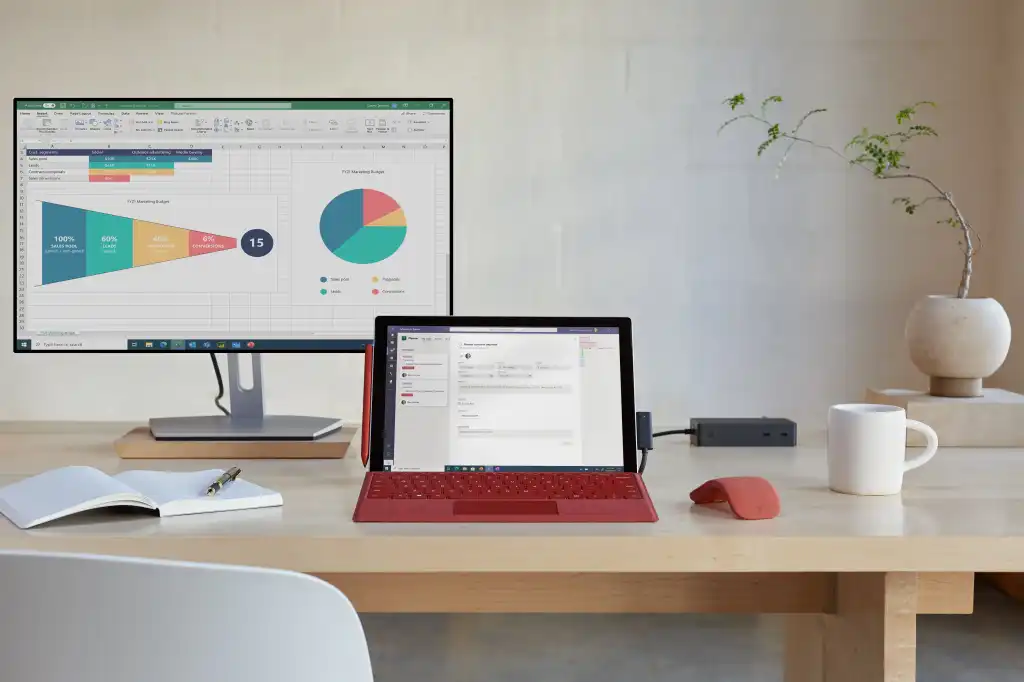Microsoft has unveiled its new AI-powered Copilot+ PCs. This innovation is poised to revolutionize the user experience by embedding AI deeply into the core functions of personal computers, thereby enhancing productivity, personalization, and user engagement.
The Evolution of AI in Personal Computing
Artificial intelligence has been gradually infiltrating the realm of personal computing over the past decade. From basic automation features to advanced machine learning applications, the trajectory has been clear: AI is here to stay. However, Microsoft’s introduction of Copilot+ PCs represents a major shift from merely using AI as an accessory feature to making it a central component of the PC experience.
The Copilot+ initiative is not just about integrating AI into existing software; it is about rethinking the hardware-software relationship. Microsoft aims to create a seamless AI-powered ecosystem that leverages the full potential of both hardware and software to deliver a unified and highly intelligent user experience.
Key Features of Copilot+ PCs
- AI-Enhanced Productivity Tools:
Microsoft’s suite of productivity tools, including Office 365, has been revamped to incorporate advanced AI functionalities. Users will benefit from AI-driven suggestions, automated data analysis, and intelligent scheduling. For instance, Excel can now predict and automate complex data patterns, while Word can provide real-time language translations and advanced grammar corrections. - Personalized User Experience:
Copilot+ PCs utilize AI to learn from user behaviour and preferences, offering a highly personalized computing experience. The AI can adjust system settings, recommend applications, and even curate content based on the user’s habits and needs. This level of personalization aims to make computing more intuitive and efficient. - Intelligent Security Features:
Security is a major focus for Copilot+ PCs. AI-driven security measures include real-time threat detection and response, behavioural analysis to detect unusual activity, and advanced biometric authentication methods. These features ensure that users’ data and privacy are safeguarded against increasingly sophisticated cyber threats. - Enhanced Connectivity and Collaboration:
The integration of AI in communication tools such as Microsoft Teams means enhanced features like real-time translation, automated meeting summaries, and intelligent participant management. These features are designed to facilitate smoother and more efficient collaboration, whether for remote work or in-office environments. - Adaptive System Performance:
Copilot+ PCs are equipped with AI that dynamically optimizes system performance based on current tasks. This means better battery management, more efficient use of resources, and an overall faster and smoother user experience. For example, the system can allocate more power to graphic-intensive tasks like video editing while conserving energy during basic tasks like web browsing.
The Role of Hardware in Copilot+ PCs
The success of AI integration in Copilot+ PCs relies heavily on the underlying hardware. Microsoft has partnered with leading hardware manufacturers to ensure that these PCs are equipped with the latest advancements in AI-compatible processors and components. These include specialized AI co-processors that handle machine learning tasks more efficiently than traditional CPUs or GPUs.
In addition, these PCs feature enhanced memory architectures and faster storage solutions to handle the increased data throughput required by AI applications. High-resolution displays with adaptive brightness and colour adjustment, driven by AI, provide a superior visual experience that adapts to different lighting conditions and user preferences.
Impact on the Market
The introduction of Copilot+ PCs is expected to have a significant impact on the personal computing market. As AI becomes a key differentiator, other tech companies will likely follow suit, integrating similar AI capabilities into their products. This competition is expected to drive innovation, resulting in a broader range of AI-enhanced computing options for consumers.
Moreover, businesses and enterprises are likely to see the value in deploying Copilot+ PCs to enhance productivity and security. With AI handling routine tasks and providing advanced analytical insights, employees can focus on more strategic activities, potentially leading to increased efficiency and innovation within organizations.
Challenges and Considerations
While the potential benefits of AI-powered PCs are immense, there are several challenges and considerations to address. One major concern is privacy. With AI systems collecting and analyzing vast amounts of data to provide personalized experiences, ensuring that this data is handled responsibly and securely is crucial. Microsoft has emphasized its commitment to data privacy and security, implementing stringent measures to protect user information.
Another consideration is the learning curve associated with new technology. Users may need time and training to fully utilize the advanced features of Copilot+ PCs. Microsoft plans to offer comprehensive support and resources to help users transition smoothly.
There is also the issue of accessibility and cost. Advanced AI-powered PCs may come with a higher price tag, potentially limiting access for some users. Microsoft aims to mitigate this by offering a range of models at different price points, ensuring that the benefits of AI are accessible to a broader audience.
Future Prospects
The launch of Copilot+ PCs is just the beginning. Microsoft envisions a future where AI is seamlessly integrated into every aspect of personal computing, continually learning and evolving to meet the changing needs of users. Future updates and iterations of Copilot+ PCs will likely bring even more sophisticated AI capabilities, further enhancing productivity, personalization, and security.
In the broader context, the success of AI-powered PCs could accelerate the adoption of AI across various sectors, driving innovation and growth in industries ranging from healthcare to finance to education. The ability to harness the power of AI in everyday computing has the potential to transform how we live and work, making technology more intuitive, efficient, and responsive.
Conclusion
Microsoft’s launch of AI-powered Copilot+ PCs represents a significant milestone in the evolution of personal computing. By embedding AI deeply into the core functions of PCs, Microsoft is setting a new standard for what users can expect from their computing devices. Enhanced productivity tools, personalized experiences, intelligent security features, and adaptive performance are just the beginning. As AI technology continues to advance, the possibilities for innovation and improvement in personal computing are virtually limitless. With Copilot+ PCs, Microsoft is not just keeping pace with the future of technology—it is helping to shape it.


